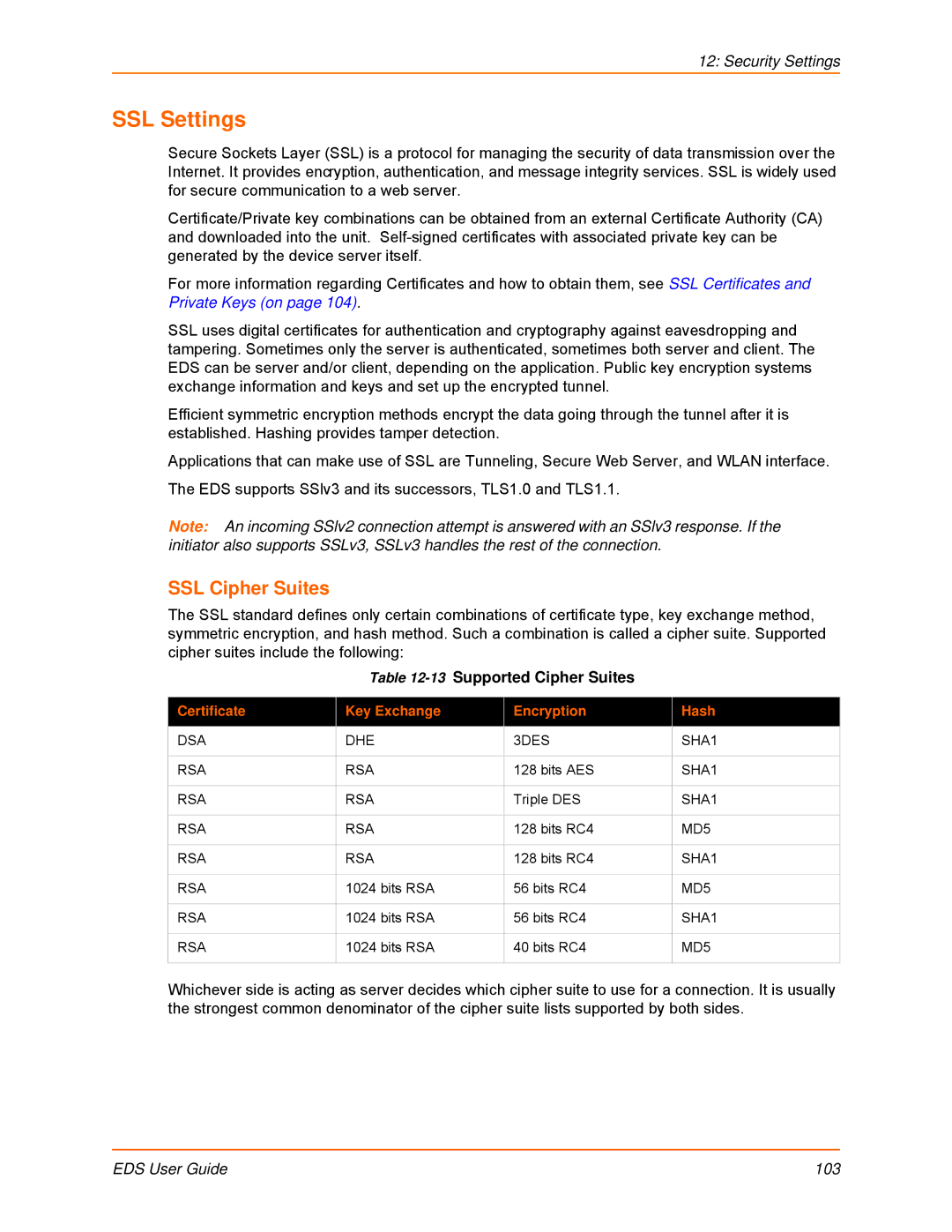
12: Security Settings
SSL Settings
Secure Sockets Layer (SSL) is a protocol for managing the security of data transmission over the Internet. It provides encryption, authentication, and message integrity services. SSL is widely used for secure communication to a web server.
Certificate/Private key combinations can be obtained from an external Certificate Authority (CA) and downloaded into the unit.
For more information regarding Certificates and how to obtain them, see SSL Certificates and Private Keys (on page 104).
SSL uses digital certificates for authentication and cryptography against eavesdropping and tampering. Sometimes only the server is authenticated, sometimes both server and client. The EDS can be server and/or client, depending on the application. Public key encryption systems exchange information and keys and set up the encrypted tunnel.
Efficient symmetric encryption methods encrypt the data going through the tunnel after it is established. Hashing provides tamper detection.
Applications that can make use of SSL are Tunneling, Secure Web Server, and WLAN interface. The EDS supports SSlv3 and its successors, TLS1.0 and TLS1.1.
Note: An incoming SSlv2 connection attempt is answered with an SSlv3 response. If the initiator also supports SSLv3, SSLv3 handles the rest of the connection.
SSL Cipher Suites
The SSL standard defines only certain combinations of certificate type, key exchange method, symmetric encryption, and hash method. Such a combination is called a cipher suite. Supported cipher suites include the following:
Table 12-13 Supported Cipher Suites
Certificate | Key Exchange | Encryption | Hash |
|
|
|
|
DSA | DHE | 3DES | SHA1 |
|
|
|
|
RSA | RSA | 128 bits AES | SHA1 |
|
|
|
|
RSA | RSA | Triple DES | SHA1 |
|
|
|
|
RSA | RSA | 128 bits RC4 | MD5 |
|
|
|
|
RSA | RSA | 128 bits RC4 | SHA1 |
|
|
|
|
RSA | 1024 bits RSA | 56 bits RC4 | MD5 |
|
|
|
|
RSA | 1024 bits RSA | 56 bits RC4 | SHA1 |
|
|
|
|
RSA | 1024 bits RSA | 40 bits RC4 | MD5 |
|
|
|
|
Whichever side is acting as server decides which cipher suite to use for a connection. It is usually the strongest common denominator of the cipher suite lists supported by both sides.
EDS User Guide | 103 |
